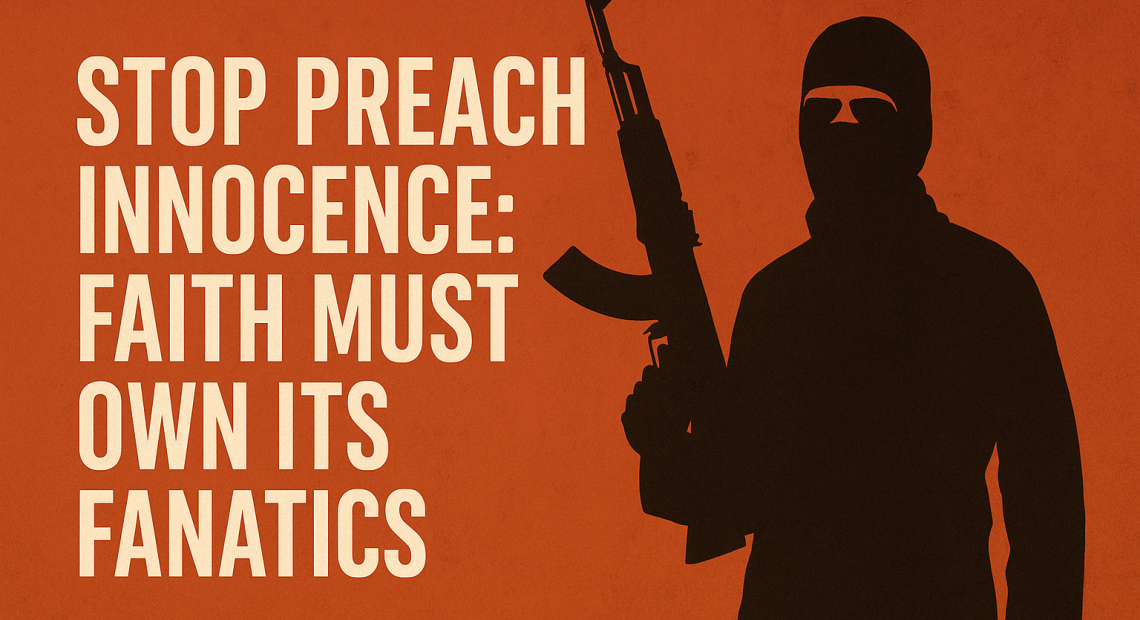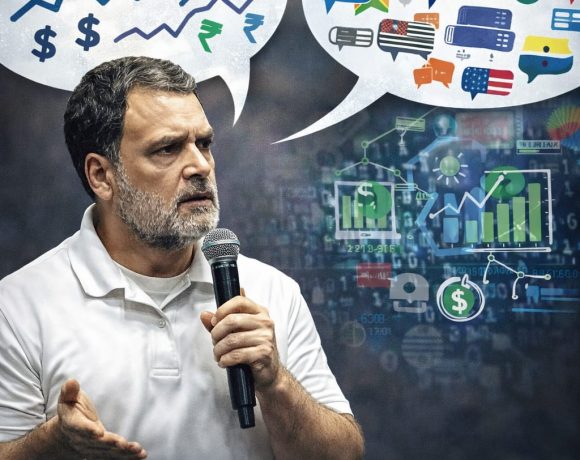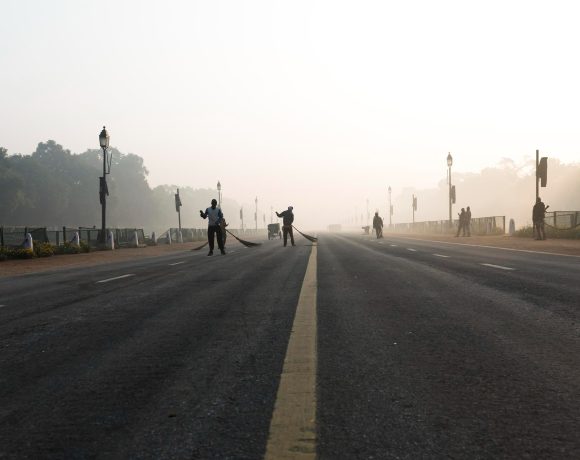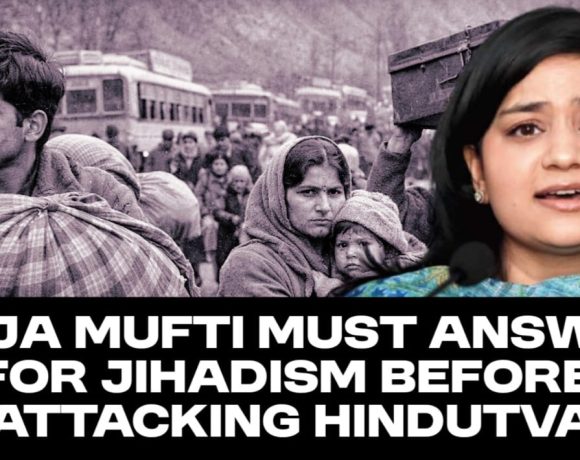
Stop Preaching Innocence: Faith Must Own Its Fanatics
Every act of terror that shakes the world is followed by the same moral chorus: “Terror has no religion.” It’s repeated so often that it now functions as an emotional bandage rather than an idea. It’s meant to comfort the public, protect the faithful, and silence uncomfortable questions. But denial is not wisdom. The reality is that radicalism, in its most visible and violent form today, doesn’t grow out of poverty or lack of education. It grows out of a sustained ecosystem of ideological grooming — an industry of indoctrination that uses faith as fuel and clerics as engineers.
For years, analysts and policymakers have blamed economic despair for terror. They’ve argued that joblessness, marginalization, and inequality make young people vulnerable to extremism. Yet, history and evidence repeatedly contradict that theory. Many of the world’s most dangerous terrorists weren’t illiterate or starving — they were educated and financially stable. Osama bin Laden studied civil engineering, Ayman al-Zawahiri was a qualified surgeon, and the 9/11 hijackers trained as pilots in Western countries. None of them were desperate for food; they were desperate for ideological validation. The world calls it poverty; extremists call it purpose.
The uncomfortable truth is that radicalism is a manufactured mindset, not an economic symptom. It is crafted carefully by preachers who twist scripture into slogans and turn faith into a weapon. In hundreds of unregulated madrassas and religious centers, children are not taught to question — they are taught to obey. They grow up hearing that glory lies in death, that doubt is sin, and that the world outside their religion is corrupt. This is not faith; it’s mental conditioning masquerading as devotion. Poverty may open the door, but it is the Maulana who walks in and locks it from the inside.
What makes the situation worse is the silence of those who know better. Moderate clerics, intellectuals, and religious scholars often choose silence over confrontation. Whether out of fear, convenience, or misplaced solidarity, they allow radicals to monopolize the pulpit. Their silence isn’t neutrality; it’s complicity. True reform demands courage, but courage is inconvenient when comfort pays better. Every religion that has evolved — from Christianity after the Inquisition to Hinduism after reform movements — did so because it confronted its own failings. Islam’s tragedy today is not that extremists exist, but that moderates don’t oppose them loudly enough.
Then comes the global hypocrisy. Western governments and liberal institutions claim to fight extremism, yet avoid calling it what it is. They drown facts in euphemisms, terrified of offending sensitivities. “Cultural understanding” becomes a shield against honest discussion. In that vacuum, radicals thrive — exploiting freedom of speech to destroy the very societies that grant it. The irony is bitter: the same Western media that mocks Bible fundamentalism often bends over backwards to rationalize jihadist theology. The result is predictable — radicals keep killing, moderates keep apologizing, and the rest of the world keeps pretending not to see.
The solution isn’t complicated, but it demands honesty. Faith leaders must take ownership. They must publicly confront the clerics who glorify violence, reform the madrassas that breed blind obedience, and promote education rooted in reason, not rage. No government can fix a theological rot if the religion itself refuses to clean its house.
It’s time to stop preaching innocence. Terrorism will never be defeated by jobs, welfare, or slogans. It will only end when societies confront the pulpits that poison young minds in God’s name. Denial may sound peaceful, but it’s the quiet that comes before another explosion. Maybe terror has no religion — but religion, undeniably, has a terror problem.


















